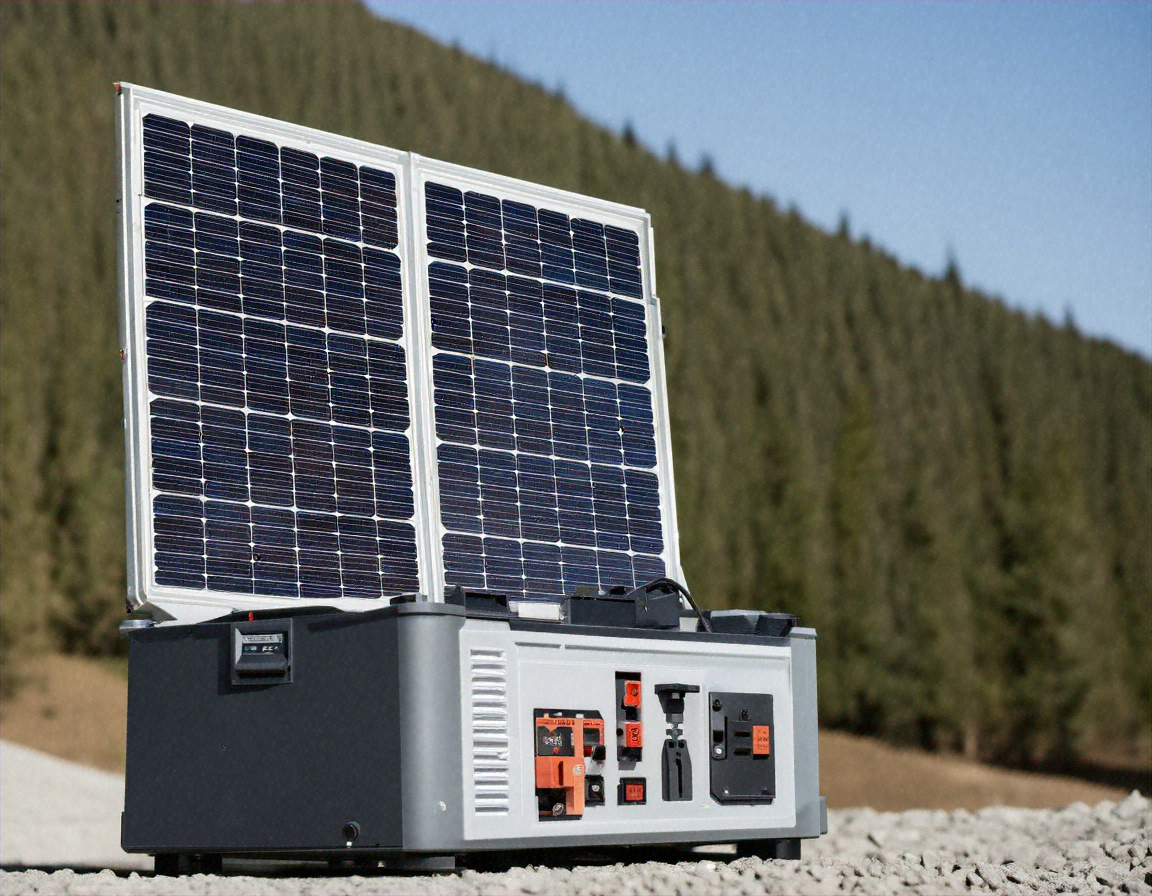Stay Powered Up: Solar Generators for Home Backup and Off-Grid Use
Power outages and the growing desire for sustainable energy solutions have led many homeowners to consider solar generators as reliable alternatives to traditional fuel-powered backup systems. Solar generators harness energy from the sun, store it in batteries, and convert it to usable electricity—providing a clean, renewable power source for both emergency situations and off-grid adventures. These versatile systems offer independence from the grid while reducing environmental impact.

What Exactly Is a Solar Generator?
A solar generator is a portable power system that captures solar energy through photovoltaic panels, stores that energy in batteries, and converts it to usable AC power through an inverter—all components typically housed in a single unit or connected system. Unlike conventional generators that burn fossil fuels, solar generators operate silently without emissions, fumes, or ongoing fuel costs. The basic components include solar panels, a charge controller to regulate battery charging, batteries for storage (typically lithium-ion), and an inverter that transforms the stored DC power into AC electricity for powering devices and appliances.
Solar generators function by collecting sunlight through the panels, which create an electric current. This energy passes through the charge controller, which optimizes the charging process and protects the batteries from damage. When power is needed, the stored energy is drawn from the batteries and converted by the inverter to household-standard electricity, allowing you to run appliances, charge devices, or power essential systems during outages.
Solar Generator Types for Different Needs
Solar generators come in various capacities and configurations to match specific power requirements and usage scenarios. Portable solar generators are compact units designed for camping, RV trips, or small emergency backup. These systems typically offer 500-2000 watt-hours of capacity, sufficient for charging electronic devices, powering small appliances, or running lights. Their lightweight design and integrated carrying handles make them ideal for transportation and temporary use.
Home backup solar generators represent a more robust category, offering 2000-10,000+ watt-hours of capacity. These systems can power essential household circuits during extended outages, including refrigerators, medical equipment, and communication devices. Some models offer expandable battery capacity, allowing users to add storage modules as needs evolve.
For off-grid living applications, comprehensive solar generator systems feature higher capacity batteries, more extensive solar panel arrays, and more powerful inverters capable of running most household appliances. These systems often integrate with home electrical panels to provide seamless power management and can be scaled to meet varying energy demands.
Solar Generator Cost Considerations
Solar generators represent a significant initial investment compared to conventional fuel generators, though they typically offer lower lifetime costs due to minimal maintenance requirements and free fuel from the sun. The price spectrum varies widely based on capacity, quality, and included components.
Entry-level portable solar generators with basic panels range from $500-1,500, offering 500-1,000 watt-hours of capacity. Mid-range systems providing 1,000-3,000 watt-hours typically cost between $1,500-3,500, while premium home backup systems with 3,000-10,000+ watt-hours of capacity and advanced features generally range from $3,500-10,000+. Expandable systems with higher-quality components and greater capacity represent the upper pricing tier.
| Solar Generator Type | Capacity Range (Wh) | Typical Price Range | Common Applications |
|---|---|---|---|
| Entry-Level Portable | 500-1,000 | $500-1,500 | Camping, small devices, limited backup |
| Mid-Range Portable | 1,000-3,000 | $1,500-3,500 | RV use, small appliances, basic home backup |
| Home Backup Systems | 3,000-10,000+ | $3,500-10,000+ | Essential circuit backup, medical equipment |
| Full Off-Grid Systems | 10,000-30,000+ | $10,000-30,000+ | Comprehensive home power, off-grid living |
Prices, rates, or cost estimates mentioned in this article are based on the latest available information but may change over time. Independent research is advised before making financial decisions.
Additional costs to consider include solar panel expansion (if not included), mounting hardware, installation services for larger systems, and eventual battery replacement (typically after 5-10 years, depending on usage patterns and battery chemistry).
Solar Generator Advantages Over Traditional Options
Solar generators offer several distinct advantages over conventional fossil fuel alternatives. First, they provide truly renewable energy with zero emissions during operation. This eliminates the harmful exhaust, carbon monoxide dangers, and noise pollution associated with gas generators, making solar generators safe for indoor use and environmentally responsible.
The economic benefits become apparent over time, as solar generators eliminate ongoing fuel costs and require minimal maintenance with few moving parts. Most systems only need occasional cleaning of solar panels and eventual battery replacement every 5-10 years. This contrasts sharply with conventional generators requiring regular oil changes, fuel stabilizers, and mechanical servicing.
Operational advantages include silent performance, which is particularly valuable in residential settings or natural environments where noise pollution is undesirable. Solar generators also offer greater versatility in placement, as they don’t require ventilation for exhaust and pose no fire hazards from fuel storage. Many modern units provide smart features including mobile app monitoring, programmable power management, and multiple output options (AC, DC, and USB) to accommodate various devices.
For remote locations, solar generators provide independence from fuel supply chains, offering reliable power as long as sunlight is available. This self-sufficiency makes them particularly valuable for off-grid cabins, disaster preparedness, and locations where fuel delivery is challenging or impossible.
Choosing the Right Solar Generator System
Selecting an appropriate solar generator requires careful assessment of your power needs and usage scenarios. Begin by calculating your essential power requirements by listing critical appliances and devices with their wattage ratings, considering both starting (surge) and running watts. Determine how long you need to run these items during outages or off-grid scenarios to establish your necessary capacity.
Consider the solar recharging capabilities in your location, accounting for average sunlight hours and seasonal variations. Systems with expandable panel capacity offer adaptability to various conditions. Evaluate battery chemistry options carefully—lithium iron phosphate (LiFePO4) batteries typically offer longer lifespans and better safety profiles than cheaper lithium-ion alternatives, though at higher initial cost.
For home backup applications, look for systems with higher continuous output ratings, pure sine wave inverters (for sensitive electronics), and potentially home integration options. Portable systems should balance capacity with weight and dimension considerations based on your transportation needs.
By carefully matching your power requirements with the appropriate solar generator system, you can enjoy reliable, sustainable power for emergencies or off-grid adventures while contributing to environmental sustainability.




